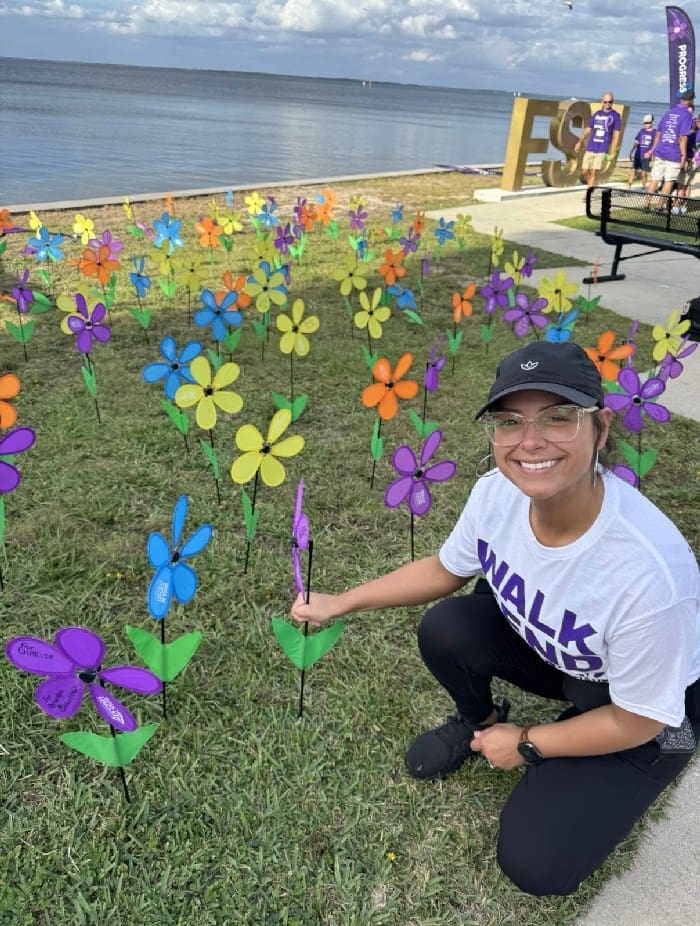By Matt Eaton
For Panama City resident Kathy Hobbs, Alzheimer’s disease has always been part of life.
“I remember being around great-aunts and uncles and hearing mention of the ‘family curse,’ but I wasn’t old enough to understand what it meant,” recalled Hobbs. “It wasn’t until my adolescent years that I truly understood Alzheimer’s and saw how deeply it had affected my family across multiple generations. That was scary for a kid—and heartbreaking to witness.”
According to the Alzheimer’s Association, individuals who have a parent or sibling with Alzheimer’s are at an increased risk of developing the disease. This risk rises further when multiple family members are affected. For people like Hobbs, a high family prevalence can make Alzheimer’s feel unavoidable. But there is hope.
“It’s important to remember that Alzheimer’s is a disease, not a normal part of aging,” said Tina Henson, a development manager with the Central and North Florida chapter of the Alzheimer’s Association. “Many people assume it’s inevitable, but there are proactive steps we can take to reduce our risk.”

While researchers continue to investigate Alzheimer’s causes, known risk factors include age (especially over 65), family history, genetics and lifestyle choices. Some risk factors like age and family history cannot be changed, but there are things anyone can change to reduce their risk. In fact, recent studies show that even those genetically predisposed to Alzheimer’s can reduce their risk of cognitive decline by adopting healthy lifestyle habits.
The Alzheimer’s Association highlights 10 research-backed habits to reduce cognitive decline. These include challenging your brain by learning new skills or engaging in artistic activities, lifelong education, regular physical activity, protecting the head from injury, quitting smoking, managing blood pressure and diabetes, and eating nutritious foods such as leafy greens, lean proteins and limiting processed foods.
“Even incorporating just one or two healthy habits into your routine can make a difference,” Henson emphasized. “Think about what you can start doing today. Maybe it’s walking a few times a week or picking up a new hobby to stimulate your mind. It’s never too late to begin.”
For Hobbs, actively participating in the fight against Alzheimer’s has been vital.
“Generations of my family have faced Alzheimer’s directly or indirectly, and I’m grateful for their willingness to donate their blood or brains to research,” Hobbs said. “Their generosity helps ensure future generations might enjoy a better quality of life, even if diagnosed.”
On Sunday, Nov. 2, Hobbs will join hundreds of others impacted by Alzheimer’s and dementia at the Walk to End Alzheimer’s Emerald Coast. The event brings together families, friends, local leaders and businesses to raise funds and awareness in the fight against the disease. The Walk opens at 2 p.m. at FSU Panama City with an opening ceremony at 3 p.m. and the walk immediately following.
To register or learn more, visit alz.org/EmeraldCoastPCWalk.























































